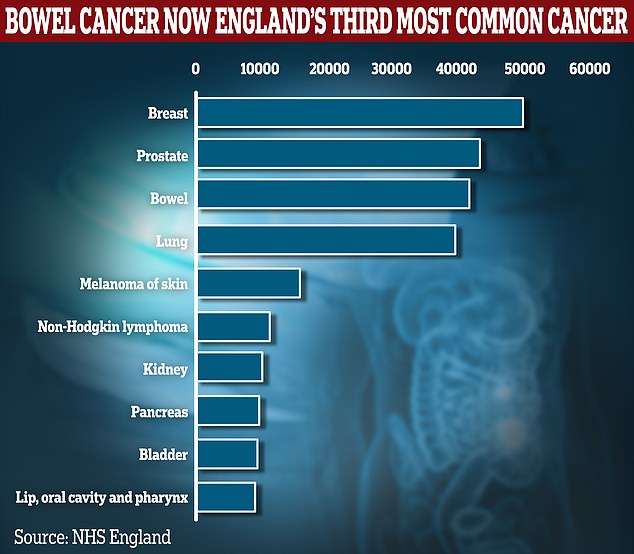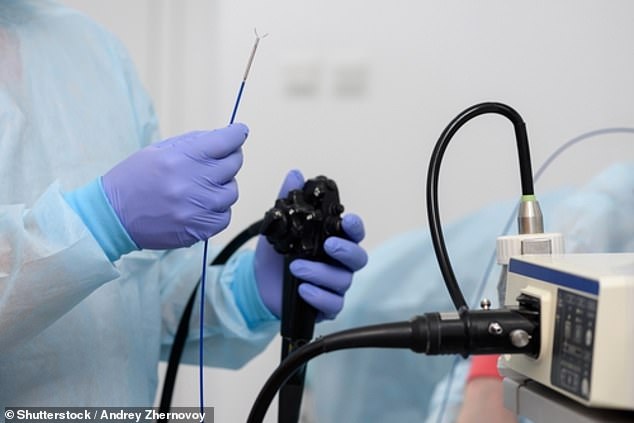Scientists believe a chemical found in wine could help prevent bowel cancer.
Resveratrol, a natural compound found mainly in red grapes as well as blueberries, raspberries and peanuts, will be part of a major trial to see if it can stop cancer from developing.
Researchers are recruiting 1,300 patients for the “unique experiment” at 60 sites in England and Wales over the next few years in one of the largest studies ever conducted on preventive therapies.
Experts say it could have “big implications” for people at risk of the disease.
The study will recruit people aged 50 to 73 who have bowel polyps when tested as part of the NHS bowel screening programme.
A chemical found in wine could help prevent bowel cancer, scientists say (file image)

Resveratrol, a natural compound found mainly in red grapes, will be part of a major trial to see if it can stop the development of cancer (file image)

These are small growths that are usually not serious but can turn into cancer if left untreated.
The polyps will be removed and patients will receive aspirin alone, or a combination of aspirin and metformin, for the main trial.
Others will take purified resveratrol or a placebo as part of a substudy.
Those in the aspirin and metformin groups will take the drugs daily for three years, while those taking resveratrol or placebo will take them for one year.
All patients will then have a colonoscopy (a long, thin tube with a camera to help doctors see inside the colon) to determine if the polyps have started to grow again.
Professor Karen Brown, from the University of Leicester, said: “We are embarking on a unique experiment to see how drugs could stop the growth of intestinal polyps.
‘This trial could have big implications for how to prevent bowel cancer in people who are more likely to develop the disease as they age.
‘Screening has made huge progress in detecting bowel cancers in those most at risk.
‘But to improve outcomes even further, we must first prevent more bowel cancers from arising.
“We can enhance those efforts by embracing therapeutic prevention, which uses our growing knowledge of cancer biology to find drugs that can stop it in its early stages.”
Bowel cancer is the fourth most common cancer in the UK, with approximately 44,000 people each year (or around 120 a day) diagnosed with the disease.

Researchers are recruiting 1,300 patients for the “unique experiment” at 60 sites in England and Wales over the next few years (file image)

Experts say it could have “big implications” for people at risk of the disease (file image)
It is not always known what causes it, but the NHS advises people to exercise regularly, eat more fruit and vegetables, drink less alcohol and stop smoking to reduce the risk.
Previous research found that purified resveratrol can hinder the growth of cancer cells in small doses.
Bowel cancer screening is also offered every two years to everyone aged 54 to 74.
People receive fecal immunochemical test (FIT) kits in the mail, which look for blood in stool, allowing them to collect the sample at home.
Dr Iain Foulkes, executive director of research and innovation at Cancer Research UK, which is funding the trial, said: “This trial opens the door to a new era of cancer research, in which cancer becomes much more preventable. thanks to cutting-edge science.
‘The Colo-Prevent trial is one of the largest therapeutic prevention trials in the UK.
“The insights gained from the trial will change the way we think about cancer prevention and give more people the chance to live longer and better lives, without fear of cancer.”

